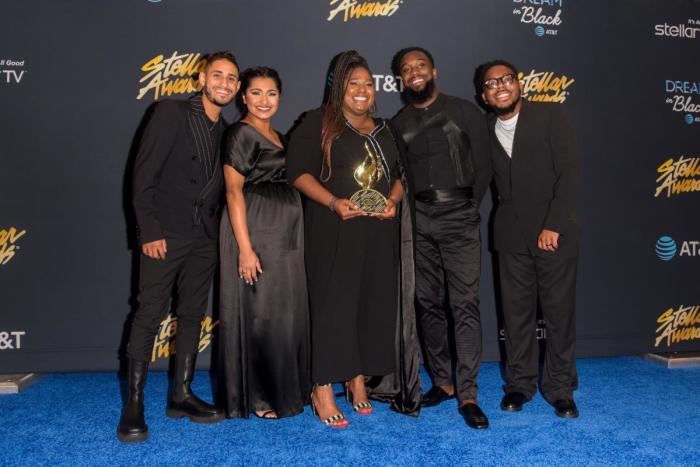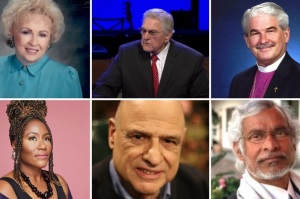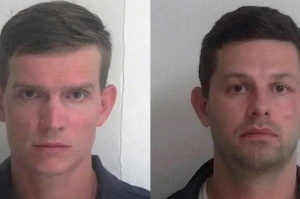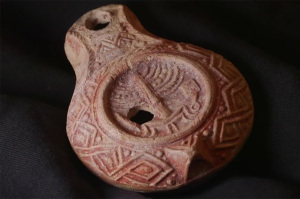‘An amplifier to the world’: Meet the force behind worship phenomenon Maverick City Music

In recent years, Maverick City Music has become a household name in Christian music. But aside from their worship anthems, including "Jireh" and “Promises," not much is known about the diverse group.
The Christian Post caught up with Jonathan Jay, CEO of Tribl Records, who, along with Tony Brown, founded Maverick City Music to get a behind-the-scenes look at the beloved group.
Maverick City Music was officially launched in 2018 after the duo spent several years hosting songwriting camps with people from across the United States. Over the years, Jay and his team brought together over 100 Christian artists and songwriters — and that effort birthed hundreds of songs.
Jay described Tribl — the force behind Maverick City Music — as a "gathering place," a "microphone" and an "amplifier for all the people who feel like they have the maverick spirit."
"The heart of Tribl is to be an amplifier to the world of what worship sounds like," he told CP.
Maverick City Music consists of a number of members, including Chandler Moore, Brandon Lake and Naomi Raine, to name a few. The diverse group released their first EP, Maverick City, Vol. 1 in 2019. It debuted in the top 10 of Billboard's Top Gospel Albums. Their first full-length album, Maverick City Vol. 3 Part 1, was released in 2020. That album garnered even more success, landing at No. 6 on Top Christian Albums and No. 2 on the Top Gospel Albums Chart.
Maverick City Music has seen success in both the Christian and mainstream worlds. Secular artists such as Justin Bieber and Shawn Mendez have publicly testified of the group's impact on their faith journeys.
The following is an edited transcript of CP's interview with Jay.
CP: How did the Maverick City Music phenomenon come about?
Jay: It started years and years ago. Tony and I started Maverick City together. But before that, we were part of the worship collective called House Fires. We wrote some songs called "Good Good Father" and "Build My Life" — songs that made their way, really, around the world, but that started in our living rooms, in our homes, with friends.
So really, there was a response to that. It was like this moment where we go, "Wow, we're writing the songs. They're not just touching us and not just touching our Church community, they're touching the world. There's something that God's doing." So immediately, our response is like, "How do we instigate that further? How do we invite more people into that?"
Our knee-jerk response to that was to bring people that we have been meeting along the way to write with us and hang out and spend time with us. So we opened up our lives, if you will, to so many people in Atlanta. We live in Atlanta; we're from Atlanta.
We'd have these writing camps that we would just host because we were songwriters, first and foremost, and we invite these people to Atlanta. We would have amazing meals, write songs, and we kept just doing this over and over again. Until finally, there were a few moments where we go, "These songs are special. They don't feel like 'House Fires,' they don't feel like maybe some of the other things that we were part of, they feel like their own distinctive thing."
Then highlighting some of the people that had been a part of those camps too, like a Chandler [Moore], Dante [Boe], a Brandon [Lake] and just the songs and the people, just felt like there was something there that God was breathing on. So we had this idea that maybe we should record a few of these songs and just see what happens.
So really, birthed out of just wanting to connect, wanting to write songs and hang out with people while eating really amazing meals. It's kind of this community that has grown to this amazing expression.
CP: Your worship music videos show the community environment that you speak of. Can you talk about your goal to redefine worship?
Jay: I think this year, this past year, in particular, we really felt the weight of it. We felt like a lot of people went to church with us during the pandemic. Lots of people who maybe had moments of realization that, "I actually won't be able to attend church, I won't be able to do the normal rhythms just because of the COVID realities." So what we really found is that people sort of went to church with us during the pandemic.
The messages and the encouragement that we would get from people like, "Hey, I haven't been to church in a long time, or I just needed this today, but I listened to a video or heard the song and it has gotten me through." I think for us, hearing that, experiencing that, seeing that was really just a reminder that God was doing something, even in the midst of a year where everyone says, "You're shutting down." We really felt like we took off in a sense.
There's a few things, the multicultural-ness of it. I think seeing people that maybe don't all look the same, or people coming together to worship; there's something where people say, "Let me look into that." I think spontaneous worship. I think the moments where you feel like the song kind of ends, but there's still something that God's doing and the leader leans into that and that's captured, that's held on to. I feel like all those things make the Tribal, the Maverick expression stand out, and so beautifully.
CP: Many people know Maverick City Music, but who is Tribl music and how is it different?
Jay: Tribl is the bat signal to all of the Mavericks out there, if that makes sense. We're a gathering place; we're a microphone, an amplifier for all the people who feel like they have the Maverick spirit and want part of that.
We come from a community of people who have been writing songs and putting music out for so long, even before Maverick City. So I think the heart really of Tribl is to be an amplifier to the world of what worship sounds like, what it looks like, and to amplify really the voices that ought to be amplified in this space. I think, for a lot of people, that's maybe people that you haven't heard of before. I think maybe there are people that you know, but maybe you haven't heard them in this way. So I think we're sort of throwing up the bat signal and inviting people to be a part of it who feel like they identify with maybe some of the things that we all sort of identify with when it comes to worship.
Tribl records and Tribl worship is literally just a welcoming signal, it's the bat signal [to] come and join and be a part of what we feel like God is doing, not just in Maverick, but in the world.
CP: Racial division is seen within the gospel and contemporary Christian music genres, but those associated with Tribl consist of all people. Can you talk about that?
Jay: It's pervasive, right? It's ubiquitous. It exists in the way that we talk about it. I think it even exists in the way that our industry sort of frames even the music. I think it's just pervasive. And I think for us, we've sort of been a part of bringing attention to, maybe there's another way. Some of that's intentional, some of it's not intentional. What I will say is that I think we're inspired by so many different streams.
All of our guys are so influenced and so impacted by Bethel, or Jesus Culture, and they're just as much as impacted by that as they are Kirk Franklin or a Donnie McClurkin. Honestly, I think we're better for being able to pull the best of what we love from each of the streams. I think it's even represented in the people that would even identify as fans of Maverick.
There are so many people that are gospel fans, but they're also people that maybe don't know as much about gospel, and they're huge CCM fans. So there is something there; I think there's something to be said about it. I think the heart really is just to stay true to what we feel we've been called to.
I think we want to tear those boundaries down. We hate that there are divides; we hate that there are the markers on the different genres that make them feel so separate. And in ways, they are different, but in the most important way, they're not. That's through inspiration, that's through the heart, through the ministry of it. They're very, very similar. So I think we carry that when we lead our songs and record our music.
CP: The music that comes from Tribl music is also reaching the mainstream world as we see pop artists such as Justin Bieber and Shawn Mendez talk about the impact Maverick City has had on them.
Jay: I think we forget that the work of the Holy Spirit and inspiration is universal. I think it's something that we're learning about. It's an invitation that I think we all are experiencing. I saw the Shawn Mendez video and I was so touched by it. I was touched for a number of reasons.
You have all these ideas and notions about who people are, and I think what was so moving and touching is that someone could be so open to what God is doing or saying. And I don't want to judge, but maybe even unaware of all the right language to say, but they're so open and so available that they could be emotionally taken over as the Holy Spirit ministers and moves. Isn't that something we should all strive for?
I would say that I think our guys have done such a great job of really being examples of people who carry their true story. I think that's something that maybe isn't done as well. But I think our guys are really open and honest about the things that they're dealing with and they're going through. There's something that's really relatable about that; there's something that's really personal about that, and people really feel connected to that.
Honestly, when you have that and then you also have music that is inspired and breathed on by the Spirit, it creates this thing where people say, 'You kind of see yourself in it.' I think that's really beautiful. There are going to be people outside of what we consider the four walls of our Christian container that identify with Maverick probably just as much as the next person.
For further information about Tribl Records and their music collective, visit their website.
Jeannie Ortega Law is a reporter for The Christian Post. Reach her at: jeannie.law@christianpost.com She's also the author of the book, What Is Happening to Me? How to Defeat Your Unseen Enemy Follow her on Twitter: @jlawcp Facebook: JeannieOMusic





























